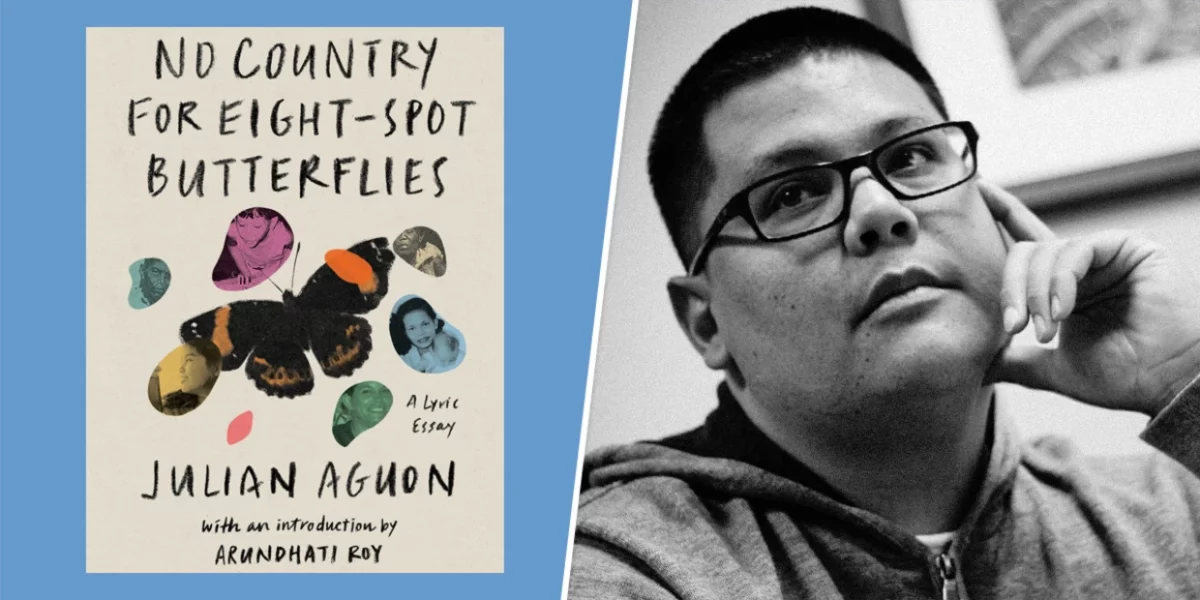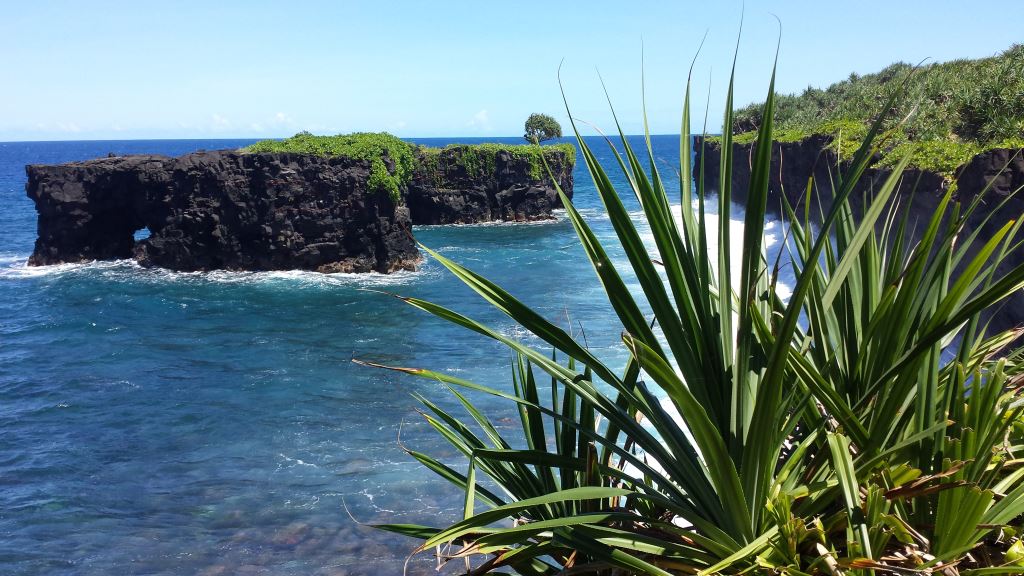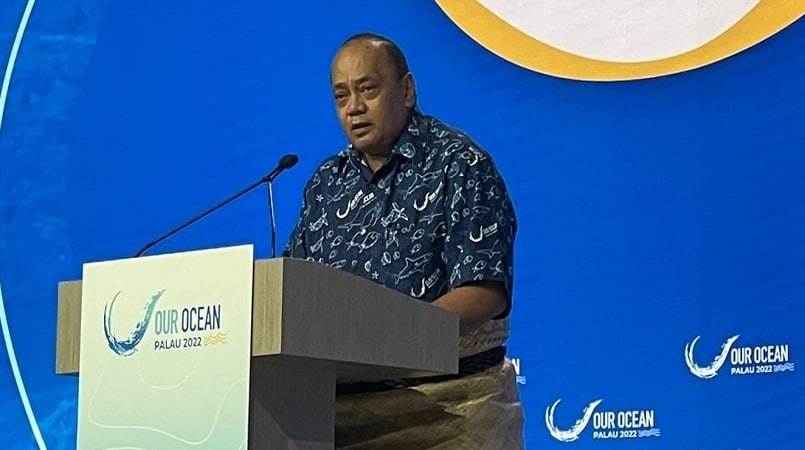Julian Aguon hopes his new book helps spread understanding — through the lens of grief and loss — of the injustices in America’s territories.
“The colonies should be brought front and center in the conversation about what needs to change in this country,” said Aguon, a human rights lawyer in Guam and author of “No Country for Eight-Spot Butterflies.”
Aguon’s book is a memoir-manifesto that publishes Tuesday. It’s a collection of essays, poems, commencement speeches and eulogies — among other writings — about resistance, resilience and collective power in the midst of the climate crisis.
In the first chapter, he writes: “How obscene is it that communities with the smallest carbon footprint—like low-lying islands and atolls in the middle of the Pacific Ocean—are paying the steepest price for a crisis we had almost no hand in creating?”
Pacific islands are on the front lines of climate change, despite accounting for a small amount of global greenhouse gas emissions. They’ve seen the impact of climate change in part by the increasing severity of typhoons.
Sea levels in the region are rising at two to three times the rate of the global average, threatening the islands’ existence. And if global temperatures increase by 2 degrees Celsius above preindustrial levels, 90% of coral reefs in the region could endure substantial degradation, which would have a number of consequences: It could negatively impact water quality, cancer drug research and the economy in the Pacific and beyond.
Aguon began writing his book at the height of the Covid-19 pandemic as a way to process his grief, which is a central theme. Suicide rates on the island of Guam were on the rise. This included young people, for whom he wrote the book as a love letter.
“I was writing out of an immediate place of grief, having death so close,” he said. “Having been flanked by death from every side at that time, the only way to really think about that, the natural thing that happens is you start processing and revisiting all of your own loved ones who have left you.”
The essays are told against the backdrop of climate change, which he called a “threat multiplier” and said is also a story of loss, with species vanishing from the face of the Earth as one of the irreversible effects of a warming planet.
Aguon wrote in the third chapter of his book about how a medicine his Auntie Frances makes with plants found on the island has been more effective in alleviating his bronchitis than any other Western medicine.
That chapter also detailed how U.S. militarization of Guam — to which thousands of Indigenous residents are opposed — jeopardizes the island’s primary source of drinking water and entails the destruction of more than 1,000 acres of native limestone forest. It’s home to several endangered species, including the eight-spot butterfly, native to Guam and the neighboring island of Saipan.
“It’s bitterly ironic that so many of these [bulldozers] bear the name ‘Caterpillar’ when the very thing they are destroying is that precious creature’s preciously singular habitat. To be sure, such forests house the host plants for the endemic Mariana eight-spot butterfly,” he wrote. “But then again maybe a country that routinely prefers power over strength, and living over letting live, is no country for eight-spot butterflies.”
Aguon was named a finalist for the Pulitzer Prize for commentary for an essay he wrote in The Atlantic in 2021 titled “To Hell with Drowning,” in which he argued that there’s a greater need for stories than facts in the fight against climate change.
“Something about the sheer scale of the problem makes people feel like they can do little to nothing to combat it. So if we shift the way we talk about climate change, we can actually move people’s hearts,” he said. “We don’t need yet another IPCC report to tell us things that we already know. We have enough facts. What we don’t have enough of are stories from the front lines of the climate crisis.”
“No Country for Eight-Spot Butterflies” was first published in 2021 under the title “The Properties of Perpetual Light,” but it was re-released this year with an introduction by author Arundhati Roy and an updated afterword about how Aguon’s life has changed since the book was published.
He said he was reminded while writing the book that grief and broken hearts serve as a bridge, particularly at a time when there is so much loss.
“We’re living in a world that’s changing so rapidly, from accelerating totalitarianism around the world to a destabilising climate. It’s just like, we are living in this mode of almost incalculable loss,” he said. “What do we do? ‘Where do we go from here?’ is the question I was trying to answer in the book.”
This story was written by Agnes Constante, originally published at NBC News America on 10 September 2022, reposted via PACNEWS.




